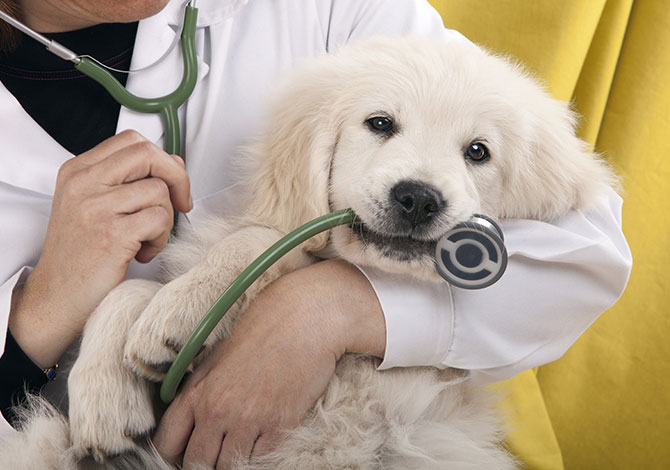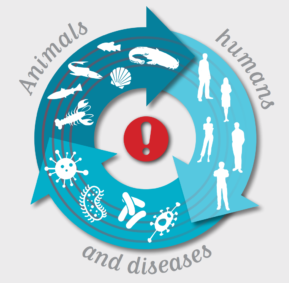What Can You Get from Your Pet?

People and pets love to share. We tend to share snacks, the couch, and even the bed with our pets. Did you know that there are some diseases and parasites that pets can share with people? There are many diseases that pets can acquire that are called zoonotic. Zoonotic disease or zoonoses are terms that are used to describe a disease or parasite that can be transmitted from an animal to a human. Many discussions that we have with pet owners in the office are about what you can get from your pet. Lets dig in to a few afflictions that can commonly be transmitted from pet to human but easily avoided with proper knowledge and preventative medicine.
Ringworm- Is a common fungus that is spread from skin to skin contact or contact with contaminated surfaces. Ringworm is not an actual worm. It appears as a circular lesion on the skin. Ringworm can infect dogs or cats and may be spread to humans. Prevention is cleanliness. It is important to keep bedding cleaned regularly. Also making sure to clean hair out of brushes, and vacuuming regularly are all good environmental practices to reduce the spreading and shedding of the fungus.
Leptospirosis-Is a bacterial infection that can be passed through urine. Oftentimes it is contracted by wildlife and shed in standing water or soil. Pets and humans can get the disease by coming in contact with the urine of infected animals. This infection can be fatal if left untreated. Symptoms of the disease are fever, vomiting, pain, and lethargy. Treatment is antibiotics and supportive care. Prevention is as easy as a vaccine! Ask the veterinarian about the leptospirosis vaccine. It is a safe and reliable tool to prevent this scary infection.
Rabies- Is a viral disease that affects the brain. Rabies is passed from one mammal to another through saliva. This is typically why when a bite occurs then there is cause for concern. Rabies affects the brain, its symptoms are neurologic. Signs of the disease are staggering, confusion, aggression, and excessive salivation. Considering there is no treatment for rabies, vaccines are critical. Vaccinating your dog and cat is also mandatory by law.
Giardia- Is a microscopic parasite that lives in the gastrointestinal tract. This zoonosis can cause lethargy, dehydration, diarrhea, and vomiting. It is found through soil, food, or water that contains contaminated feces. It is spread via fecal-oral transmission, so it is important that a fecal sample is tested at least annually on both dogs and cats. Treatment involves medications prescribed by the doctor. Making sure your pet has a clean water source is important. Do not allow animals to drink stagnant water if possible. Also using good hygiene practices, like washing hands and picking up feces promptly in the yard.
Intestinal Parasites (Roundworms and Hookworms) – These nasty worms can also be found in the gastrointestinal tract, causing vomiting and diarrhea. Like giardia, they also can be transmitted through fecal-oral transmission. It is possible to contract roundworms or hookworms if your pets like to give you kisses. These are actual worms that can easily be identified in a stool sample sent to the lab. Luckily enough, prevention is as easy as heartworm medication. Your pets monthly heartworm medication has a deworming component that can get rid of these pesky critters. That is why it is so important to keep up with your monthly prevention!
These are only a few of the more common zoonotic diseases that can be found in companion animals. Annual exams, good hygiene and preventive medicine keep our pets and ourselves safe from transmitting any of these ailments. If you have any questions or concerns about zoonotic diseases give us a call at 847-6956-7387 or email us at reception@southtownanimalhospital.com. The safety of our families is the utmost priority to our hospital. Sharling with your pet is a wonderful, bonding experience. Just not sharing all things like diseases and parasites.



